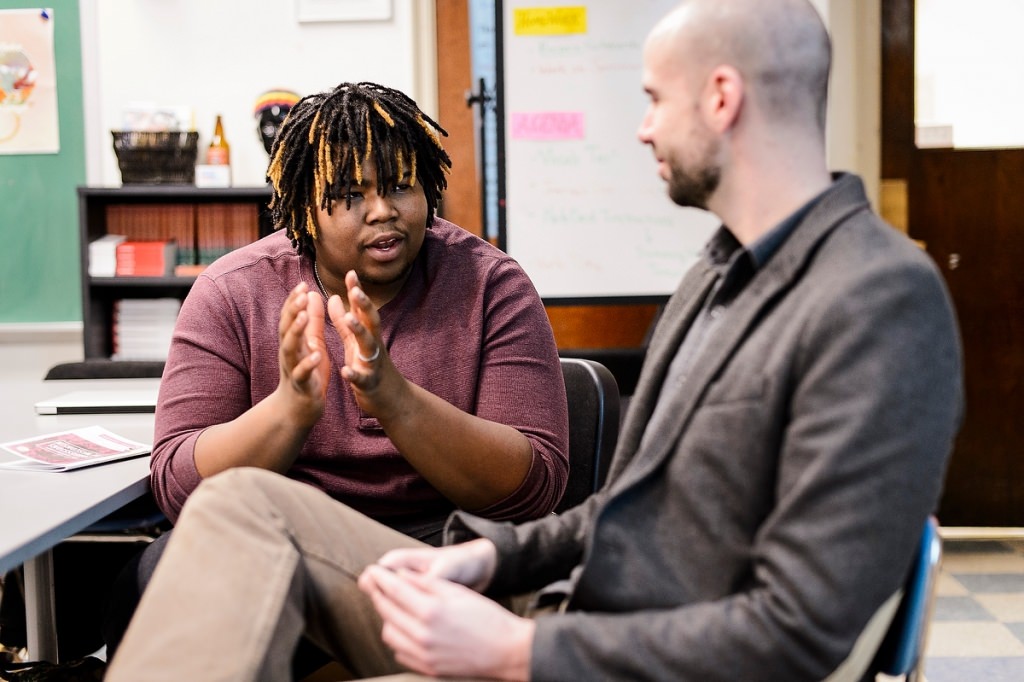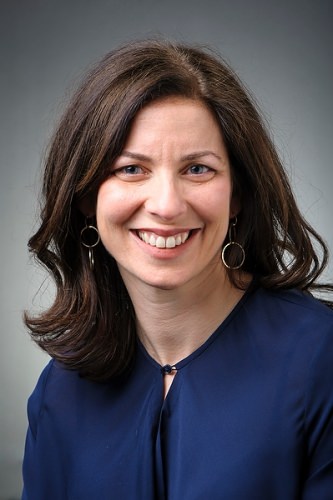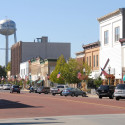With $1.1 million grant, ‘public humanities’ program gains ground

Manuel Herrero-Puertas, right, program coordinator for Great World Texts in Wisconsin, talks with Shorewood High School student Richard Lafford, Great World Texts is an outreach program that connects scholars at UW–Madison with high school teachers and students across the state through reading and discussing a classic piece of world literature. Photo: Jeff Miller
“Engaging the Humanities,” a UW–Madison program launched to help graduate students in the humanities explore rewarding careers beyond academia, has won a $1,100,000 grant from the Andrew W. Mellon Foundation to support the second phase of the initiative.
The five-year grant is intended to grow and strengthen efforts that began in 2013 with an initial $1.1 million grant from the Mellon Foundation, joining several other ambitious outreach initiatives sponsored by the UW–Madison Center for the Humanities.
“We are thrilled to receive this generous grant from the Mellon Foundation, which will help us sustain the program’s strengths and broaden its impact,” says Sara Guyer, director of the center. “Our aim is to transform the culture of the humanities within and beyond the university.”
Taking a stand against the prevailing view among many humanities scholars that the only career track that really matters is the academic track, Guyer and her team launched Engaging the Humanities to help humanities graduate students share their unique skills — such as deep research, close reading, and creative analysis — in a variety of job settings. The goal was to create a wider selection of professional opportunities for these students.
The program includes awards for faculty seeking to write for more general audiences, and a seminar series highlighting faculty and graduate students whose scholarship intersects with the community. In spring 2015, the Center for the Humanities began offering a core course and a graduate certificate in the public humanities, adding a curricular component to public projects the center’s Public Humanities Exchange already supported.
The core of Engaging the Humanities remains a fellowship/traineeship for at least five advanced graduate students annually, providing each student nine to 12 months of direct experience outside the classroom. Humanities “fellows” have been placed at the Madison Public Library, the Race to Equity Project, the Madison Children’s Museum and Wisconsin Public Radio, to name a few.
But the program also encompasses the certificate, the seminars and “Great World Texts in Wisconsin,” a major public humanities program that involves graduate students and faculty sharing insights on a major work of literature with high school teachers, who then teach that work for a semester in their classrooms.
“The second phase of Engaging the Humanities is designed to move the program from testing a model for the public humanities, to developing plans for long-term sustainability,” says Emily Clark, associate director of the Center for the Humanities.
Subscribe to Wisconsin Ideas
Want more stories of the Wisconsin Idea in action? Sign-up for our monthly e-newsletter highlighting how Badgers are taking their education and research beyond the boundaries of the classroom to improve lives.




